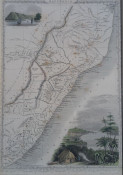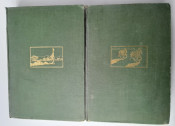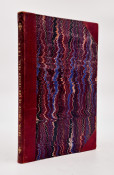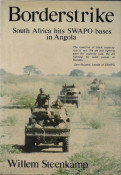"The author notes that changes are taking place in the “traditional Zulu kinship system which the Makhanya have always followed” (p. 2), but does not attempt to record those changes in any detail. This account is thus a statement of the ideals which are held, but not always observed, today and which probably obtained for some time past. The account opens with a list of the kin categories grouped by each Makhanya kinship term, each term being followed by its reciprocal and the kin categories to which it applies. Following this, each Makhanya term heads a section describing the rights and obligations of that class of kinsmen with respect to its reciprocal. Both cognatic and affinal kinship terms are included. There is an attempt to “induce the underlying social values” of kinship, but this is necessarily abbreviated and tends to take the form of generalizations such as “obedience, economic assistance, solicitude, respect, etc.” (Fig. 1). Students of Zulu culture and social structure will be interested in the content of this paper, although one continually wonders how things are, as well as how things ought to be. Students of kinship terminology will be disappointed. The terms for quite a few significant kin categories are omitted. There are some interesting deviations from the charts which Gluckman gives in his paper in Radcliffe-Brown and Forde (eds.), Ajricaa Systems oj Kinship and Marriage, especially in that Gluckman lists alternate terms which Reader does not. Likewise, certain interesting problems can be noted by comparison of these two accounts, a task which Reader does not take up. From Gluckman one infers that the wife is attached to, but not assimilated into, the husband’s lineage. Yet Gluckman lists malume as the kinship term for both MoBr and MoBrWi. Reader, on the other hand, describes the couple as identified, the wife as assimilated into the husband’s lineage, yet MoBr is called malume, MoBrWi mkamalume, which I read as “wife-mother’s brother,” mka- meaning wife. The difficulty arises from the fact that the author is clearly not interested in the terminological pattern as a problem but only as a device to symbolize classes of kinsmen and to facilitate the description of ideal roles. On the other hand, so much is done to describe the terminological system that only a little more effort on the author’s part would have increased the usefulness of this report immeasurably. Surely a kinship chart is neither hard to draw nor prohibitively expensive to reproduce by mimeograph. Certainly, too, it would hardly have been prohibitive in terms of time or expense to have included a short paragraph or two noting the divergence of Makhanya from Gluckman’s account of Zulu terminology and roles and in some measure accounting for it. For instance, Reader’s account of the relations between ego and his mother’s sister’s children make more sense to me when I learn from Gluckman that they can 1076 American Anthropologist [57, 19551 be called either “sibling” or by a distinct term. Yet Reader gives only the separating term. I wonder, therefore, if the Makhanya do not have the alternate term or if the author merely failed to report its presence." (David M. Schneider, Harvard University)
Hardcover, cloth spine; Text in English; Collation complete - 39 pages; "Colonial Office Library" blind stamped to the upper front cover with two minor stamps of the same to the title pages. "Withdrawn from the FCO Library" stamp to the inner cover. A sound copy, clear and very bright, no foxing throughout.
IMPORTANT informations regarding shipping: Shipping to South Africa possible via national post ($40) or Fedex/DHL Express service ($80-120). Shipping to EU & UK via registered Airmail trackable parcel ($30-40). Shipping to US via USPS ($40). For other countries please ask.
- Binding Condition: Very good
- Overall Condition: Very good
- Size: 33,5 x 21 cm






















